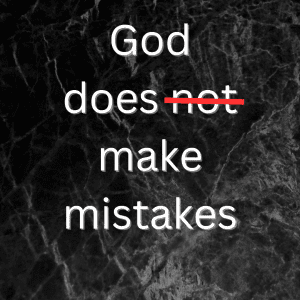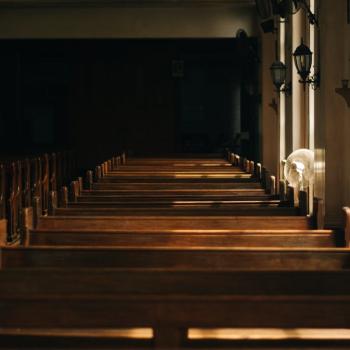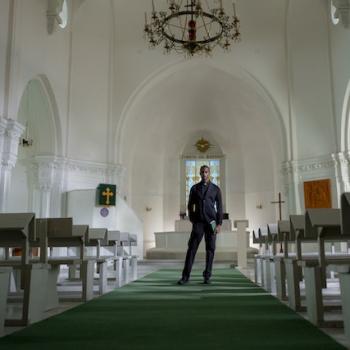The Mistakes God Made
(according to the Biblical narrative)
I wouldn’t say I like discussing theology. Still, theologians do; sometimes, they cling to pieces of the narrative that don’t make sense anymore. Theologians love to hold conferences and write books wrestling around with multiple interpretations of Genesis, etc., instead of admitting what is most likely true that it was just a story told by someone whose worldview and experiences were very different than ours. The Bible is more of a sheep herders guide to the Galaxy than anything useful for a 21st-century American. It is inadequate as a guide, even though it might capture a few helpful things.
In my tradition, theologians understood God to be perfect, infallible, all-powerful, all-knowing, all-loving, and the ideal version of a father. These doctrines are very easy to unravel by asking a few questions. It is straightforward to see that the Bible provides conflicting evidence, and what we observe in the universe also disproves most of it.
Assuming God is perfect and doesn’t make mistakes when applied to what the Bible says happened, we unearth some apparent mistakes that God made.
1. He created an imperfect world and imperfect beings.
Skilled people do things well, and experts do things very well. We don’t have perfect people every time. Still, some parts of scripture and many churches’ doctoral statements proclaim that God is perfect, insinuating and sometimes declaring that what he does is perfect.
Why could a perfect God not create perfect humans and an ideal world?
2. He created a being to torment humans.
Usually, the assumption is that Satan was a fallen Angel, and maybe even a fallen archangel, and that 1/3 of the angels fell with him. Sometimes, this is dismissed as free will that all beings have to have because, according to the scriptures, this Angel and the ones that followed him were created with the capacity to reject the perfect God and then allowed to torment human beings and convince them not to follow the creator.
How much suffering could have been reduced in the world if they assumed the perfect God would have created humans and angels that were perfect and incapable of sin like he is reported to be?
3. He could have given them “The knowledge of good and evil.”
According to the narrative, a fruit tree contained the ability to know the difference between good and evil. For some reason, God did not want them to have this knowledge, and he subversively put a tempter near them and told them not to eat of it. Because he created them imperfectly, gaining that knowledge is precisely what they wanted to do, and I don’t blame them. The creator randomly proposed a test that involved what was right and wrong. It seems like it would remove the necessity for the test to give them the information to make a good decision instead of dooming humanity for minor infractions.
So, he punished everyone for doing what was natural, using their knowledge and the way God created them.
Why did God set them up for failure, remove the resources to make good decisions, and create a being that would tempt them to do what he didn’t want them to do?
4. He created a torture chamber for minor offenses.
I have, at times, overreacted to situations in my life. I attribute this to my accumulated trauma and my imperfection. In other words, retribution is more of an indictment on the punisher than the offender. A perfect Deity would be focused on restoration instead of retribution. Christians assume the answer is the Jewish carpenter who emerged in the Greco-Roman world of the first-century thousands of years later.
Why would God punish offenders eternally for realities he established and then failed to respond for thousands of years?
5. He regretted making them and the world he created for them.
Not only did he regret making humans and the world he created them to live in, but he also killed most of them and most of the animals that we’re not even guilty. We have all had those moments during an art project or when building something where we decided to scrap the whole project and start over. So, while I can relate, those are moments once again of my imperfection, and they are not a picture of real justice. Real justice is more about who you lift up than who you bring down. It is restorative, not retributive.
Why would a perfect creator create an imperfect universe and then be upset enough to destroy it and its inhabited beings? Do perfect gods make mistakes?
6. He murdered and ordered the genocide of millions of people.
It is easy for me to imagine that people, especially in an ancient society, would have hatred towards their neighbors, want their land, and sometimes get angry enough to fight them or even kill them because I see that played out in the world I live in. But I cannot imagine a perfect God that responds in that way because I regret it in the society and times that I live in.
In the United States, when Native Americans were present on their land, eventually, white people decided to wipe them out, move them off their land, and bitterly mistreat them. We did this because of passages of scriptures that we could bend to our advantage, and we assumed that we were right and God was on our side. I understand how these things evolve and happen, but a perfect, loving God could certainly not only imagine it being different but also supernaturally enable it to be so.
Why would God murder millions of people when he created the system they were in, and failed to fix the problems that he was responsible for.
7. He never condemned slavery in his “book.”
Even though I admit that the Bible and the excluded writings are interesting and sometimes helpful, I do not believe the Bible is authoritative or a good guide for daily living. That is mainly due to the inconsistencies and the things that don’t make sense or seem all that moral. The reality is that these 66 books do not in any way condemn slavery, something we know without a doubt to be wrong and immoral. This makes it at least suspicious, if not totally unreliable, as a reference.
If God is powerful at all, why can’t he prevent or even clearly condemn atrocities like slavery and genocide?
9. He picks and chooses which prayer to answer.
Sometimes, while raising my children, I told them I could not help them in certain situations. I didn’t have the resources, and sometimes the ability, to help them solve their problems or to show them how to navigate. I was determined to do what was best for them in every single situation because I am a relatively good father. But at least when I could not help them, I told them so.
From observing life for 60 years, I have to assume that God cannot act for us or show us the precise way to navigate our struggles. If he could, then he would do it more often. A good father would at least speak directly to his child and say, “I can’t help you right now.” But God doesn’t do that except for the odd person who dreams about such things.
We can’t have vague answers in this area. Either God cannot, doesn’t want to, or is just playing a cruel cosmic game with us.
Why should we reach out to a god that rarely, if ever, responds?
The real problem with this theology is that the manuscripts and the theologians assure us the opposite, that God does respond, that he cares, and that he is able. There is little to no evidence, and most of it is circumstantial.
10. He refused to provide legitimate proof of his existence.
I know all the diversions and pseudo theories of why God doesn’t prove his existence. I studied them seriously for over 25 years and found none to hold much water. Again, if I saw my children anguishing over something they didn’t understand about my parenting or my intentions for them, to not reveal my intentions clearly to them would be abuse, not love. Some people say that creation shows that God exists. I agree that the universe is mesmerizing, and there’s something very complex and intelligent about it. But if God is perfect and the creator of that universe, he should be way more precise and more evident to the creation, which can postulate questions and imagine what he is like.
My wife’s father has been absent for 30 years. According to reports, he says he loves his daughters and grandchildren, but he hasn’t shown up in three decades.
If God cared about us at all, he would be much more visible and present!
He broke his own rules for redemption.
Because of the theory of Penal Substitutionary Atonement, most Christians believe Jesus was the perfect sacrifice for our transgressions. However, in his blog titled, 7 Reasons Why Jesus Was NOT Sacrificed For Your Sins, Keith Giles points out why Jesus didn’t satisfy the rules of sacrifice for atonement.
Here are the 7 Reasons (see link for more information). Versions of this list exist in various places, but I do not know which is the chicken or the egg.
- Sin offerings had to be female [not male] animals, according to Leviticus 4:32
- Sin offerings could not have any wounds according to Leviticus 22:22
- Sin offerings had to be taken to the Priest and offered on the altar inside the Temple according to Deuteronomy 12:13-14
- Human sacrifices for sin were an abomination to God according to Deuteronomy 12:31; 18:10 and Ezekiel 16:20
- God does not allow any man to die for the sins of another, according to Psalm 49:7-8
- All are accountable for their own sins. A Father cannot take responsibility for the sins of his children, according to Ezekiel 18:20
- The sacrifice that took away the sins of the people was NOT put to death but set free in the wilderness according to Leviticus 16:9-10
Again, the issue is that there are discrepancies and contradictions in the reference book Christianity assumes we are supposed to consult to find out what is true. I believe we shouldn’t worship or serve a God who makes these kinds of colossal mistakes and allows people to interpret his will, who routinely get it wrong and propose things that cannot be proven. Neither one of them seems too invested in that proof.
Be where are, be who you are, be at peace!
Karl Forehand
How Religion Lowers our Expectations
What Kind of Father is the Christian God?

Karl Forehand is a former pastor, podcaster, and award-winning author. His books include Out into the Desert, Leaning Forward, Apparent Faith: What Fatherhood Taught Me About the Father’s Heart, The Tea Shop and Being: A Journey Toward Presence and Authenticity. He is the creator of The Desert Sanctuary podcast and community. He is married to his wife Laura of 35 years and has one dog named Winston. His three children are grown and are beginning to multiply! You can read more about the author here.














